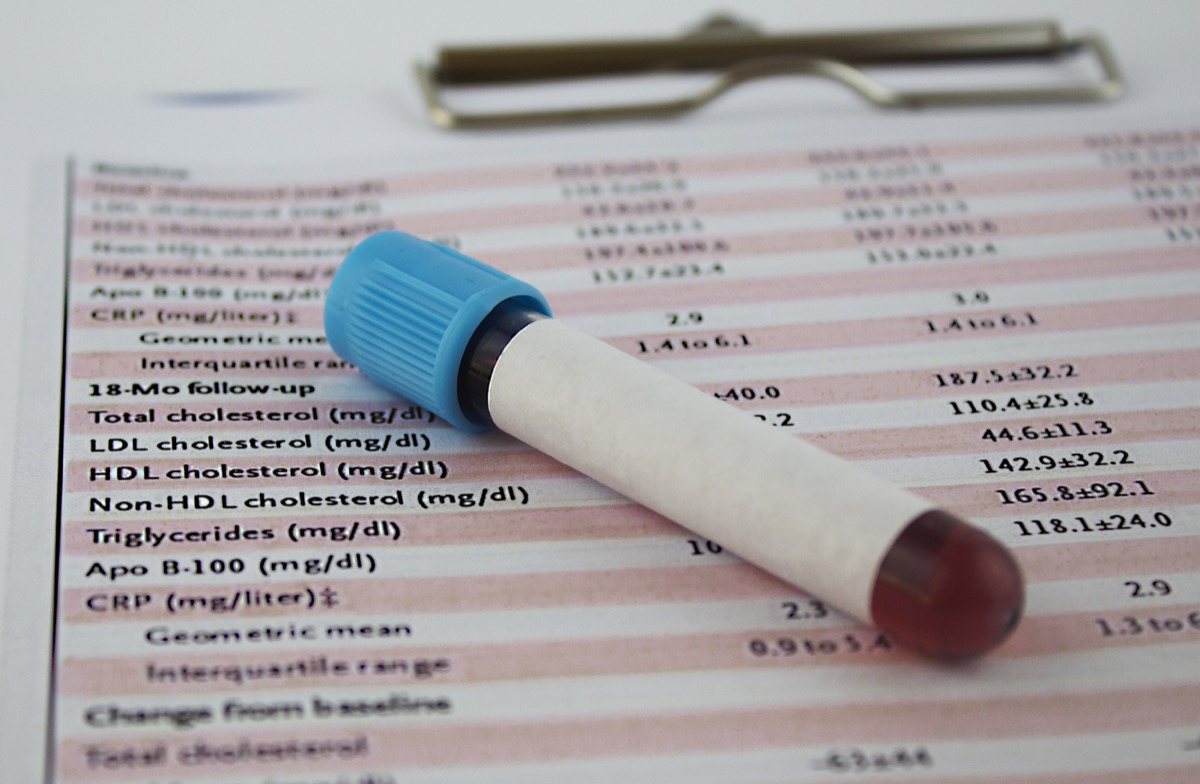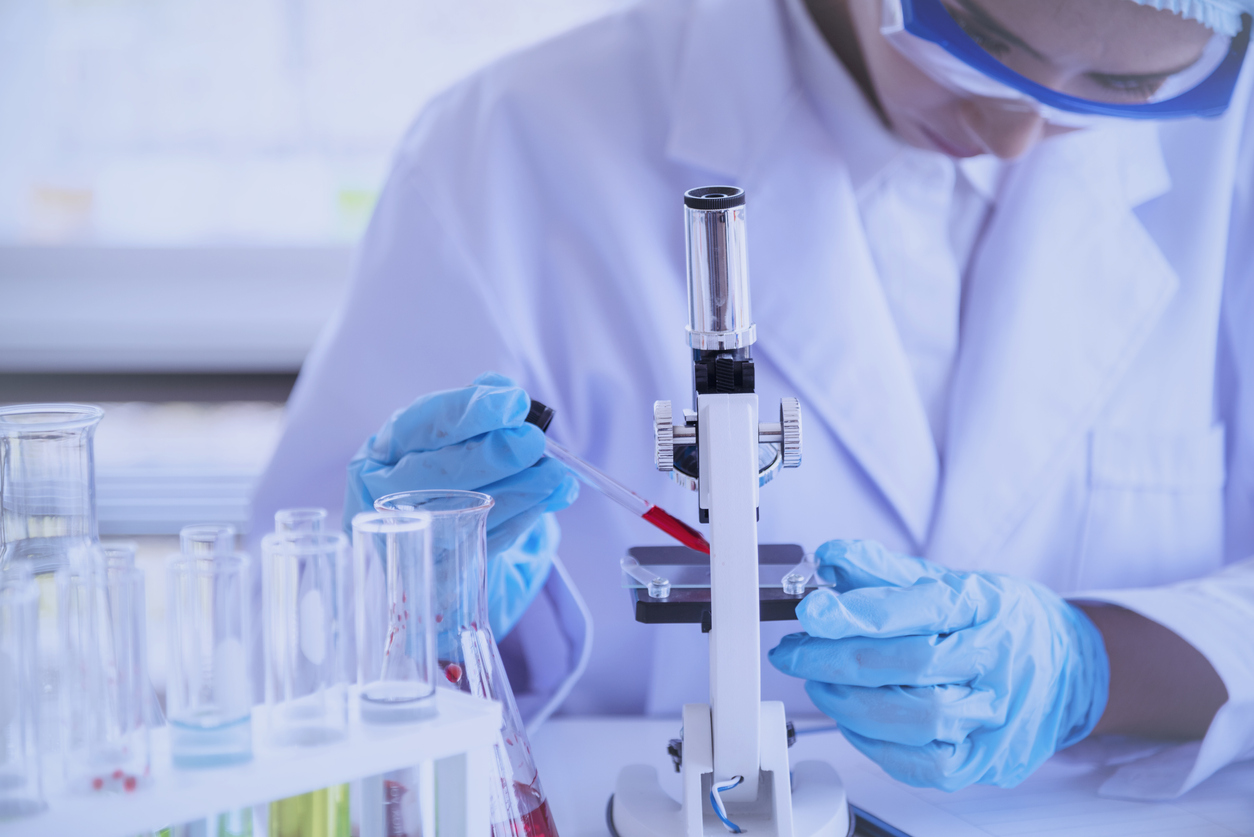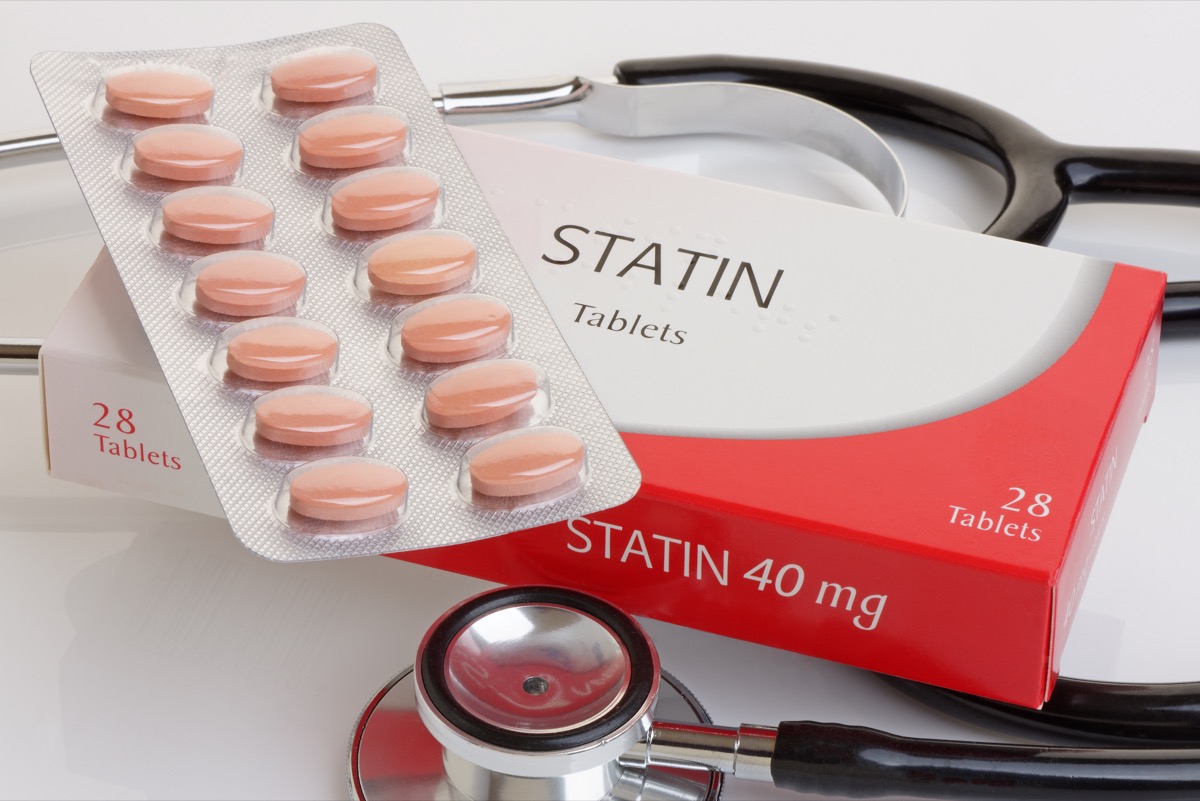A New Drug Slashed Cholesterol by 70 Percent in a Recent Study. Could It Help You?
It could lower your heart attack risk by one third, experts say.

High cholesterol increases your risk of a range of serious health conditions, including two leading causes of death in the nation: heart attack and stroke. Unfortunately, the problem is woefully under-treated, according to the Centers for Disease control and Prevention (CDC). "Slightly more than half of U.S. adults (54.5 percent, or 47 million people) who could benefit from cholesterol medicine are currently taking it," they note.
The good news? Experts are producing increasingly effective ways to treat high cholesterol when used alongside key lifestyle interventions such as a healthy diet, regular exercise, and quitting smoking. In fact, recent studies have shown that a new drug can help slash cholesterol by up to 70 percent. Read on to learn whether it may be right for you, and to find out why people with cancer may also someday benefit from this breakthrough treatment.
READ THIS NEXT: Drinking This Popular Beverage Can Slash Your Bad Cholesterol, Experts Say.
PCSK9 inhibitors can help slash cholesterol by 70 percent.

First introduced to the market in 2015, PCSK9 inhibitors offer an alternative to the most common cholesterol fighting medication, statins. Currently, there are two PCSK9 inhibitor medications approved by the FDA—Alirocumab (Praluent) and Evolocumab (Repatha). Both are administered in hospitals or primary care facilities in the form of injections every three months, according to the Cleveland Clinic, and monitored using blood tests. (Web MD notes that the shots may also be self-administered every two or four weeks.)
Aa Nov. 2022 study published in the journal Cell Reports tested an orally-administered version of the drug using animal models, and found that it successfully lowered cholesterol by 70 percent. With further research, this could open doors to the treatment's more widespread use going forward.
READ THIS NEXT: This Is Why Your High Blood Pressure Isn't Responding to Medication.
Here's how these drugs work.

"PCSK9" stands for proprotein convertase subtilisin/kexin type 9—a type of protein formed on the surface of liver cells which impacts how many low-density lipoprotein (LDL) receptors you have. The Cleveland Clinic explains that they work to lower cholesterol serum levels by protecting your LDL receptors.
"PCSK9 inhibitors block PCSK9 proteins from breaking down your LDL receptors. The result is that more of your LDL receptors work. These active LDL receptors can then reduce your LDL cholesterol more efficiently," the health organization explains, adding that this particular medication "can cut the risk of a heart attack by almost one-third."
For more health news sent directly to your inbox, sign up for our daily newsletter.
They're most often prescribed if other medication hasn't worked.

Statins remain the most frequently prescribed cholesterol fighting drug on the market. "Doctors often prescribe statins for people with high cholesterol to lower their total cholesterol and reduce their risk of a heart attack or stroke," says the Mayo Clinic. "While statins are highly effective and safe for most people, they have been linked to muscle pain, digestive problems and mental fuzziness in some people who take them and may rarely cause liver damage."
PCSK9 inhibitors may offer an alternative for people who experience side effects on statins, or those who produce an inadequate response to the medication. However, they are still commonly considered a back-up, used only once other options have been exhausted. "Most people who have high cholesterol don't need to take PCSK9 inhibitors. Usually, providers try other medications before recommending these drugs," the Cleveland Clinic notes.
They may someday offer benefits to cancer patients.

In addition to lowering cholesterol—and by extension lowering heart attack and stroke risk—PCSK9 inhibitors may also someday provide a surprising benefit to those with cancer. That's because, as the researchers point out, inhibiting PCSK9 can enhance the efficacy of cancer immunotherapies.
"PCSK9 not only targets LDL receptors for degradation, it also mediates the degradation of MHC 1 on lymphocytes, which is used for recognition of cancer cells," Stamler said in the press release. "PCSK9 is effectively preventing your lymphocytes from recognizing cancer cells. So, if you inhibit PCSK9, you can boost the body's cancer surveillance. There may be an opportunity one day to apply these new drugs to that need," he explained.
Speak with your doctor to learn more about whether PCSK9 inhibitors may be right for you.
An earlier version of this story misstated the way PCSK9 injections are given. We regret the error.
Best Life offers the most up-to-date information from top experts, new research, and health agencies, but our content is not meant to be a substitute for professional guidance. When it comes to the medication you're taking or any other health questions you have, always consult your healthcare provider directly.





















